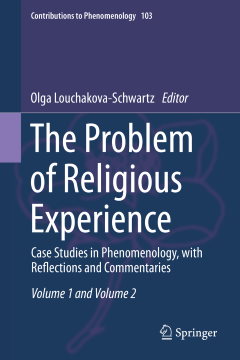Repository | Book | Chapter

(2019) The problem of religious experience, Dordrecht, Springer.
Mystical experience as existential knowledge in Raimon Panikkar's Navasūtrāni
Leonardo Marcato
pp. 215-230
The work of Raimon Panikkar (Barcelona, 1918 – Tavertet, 2010) on mystical experience stands out for its grounding in a dialogical proposal that impacts not only interreligious and intercultural dialogue but also the innermost existential dimension of the believer in particular and the Humankind in general. During his lifetime, he studied Christian, Hindu, and Buddhist spirituality in depth according to his openness to the other and the Other; he developed an original philosophical and theological proposal in which relational ontological pluralism is rooted in the Catholic Trinity. Far from being merely a description of mystical experiences common to various religions, the idea he tries to convey in his Navasūtrāni ("Nine Sūtras of Mystical Experience") is theologically and theoretically tied to his Trinitarian and relational (cosmotheandric) ontology and to his pluralist theology of religions at large, where the mystical dimension is grounding for any religious experience.The first part of this paper will express and summarize these elements of Panikkar's E = e(l.m.i.r.a), his rigorous structure of mystical experience, in the Navasūtrāni. In the second part it will be argued not only that Panikkar's Navasūtrāni proposal is a phenomenological description of mystical experience regardless of doctrinal and religious differences but further that it crosses over the epistemological and the existential dimension of the Human. In conclusion, it will then be argued that understanding religious experience according to Panikkar can serve as a foundation of how our "being-Human" builds the knowledge of the world.
Publication details
DOI: 10.1007/978-3-030-21575-0_13
Full citation:
Marcato, L. (2019)., Mystical experience as existential knowledge in Raimon Panikkar's Navasūtrāni, in O. Louchakova-Schwartz (ed.), The problem of religious experience, Dordrecht, Springer, pp. 215-230.
This document is unfortunately not available for download at the moment.



